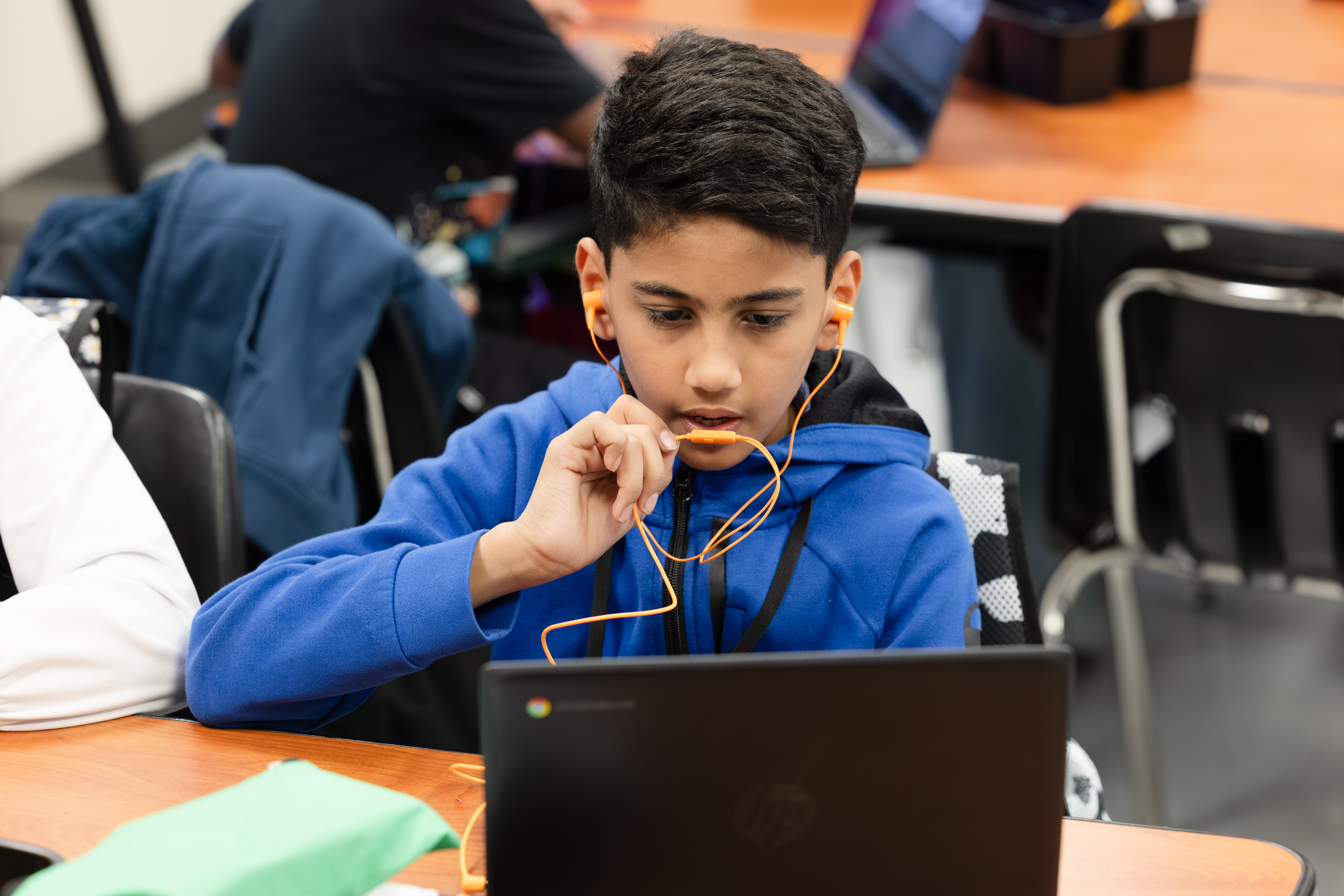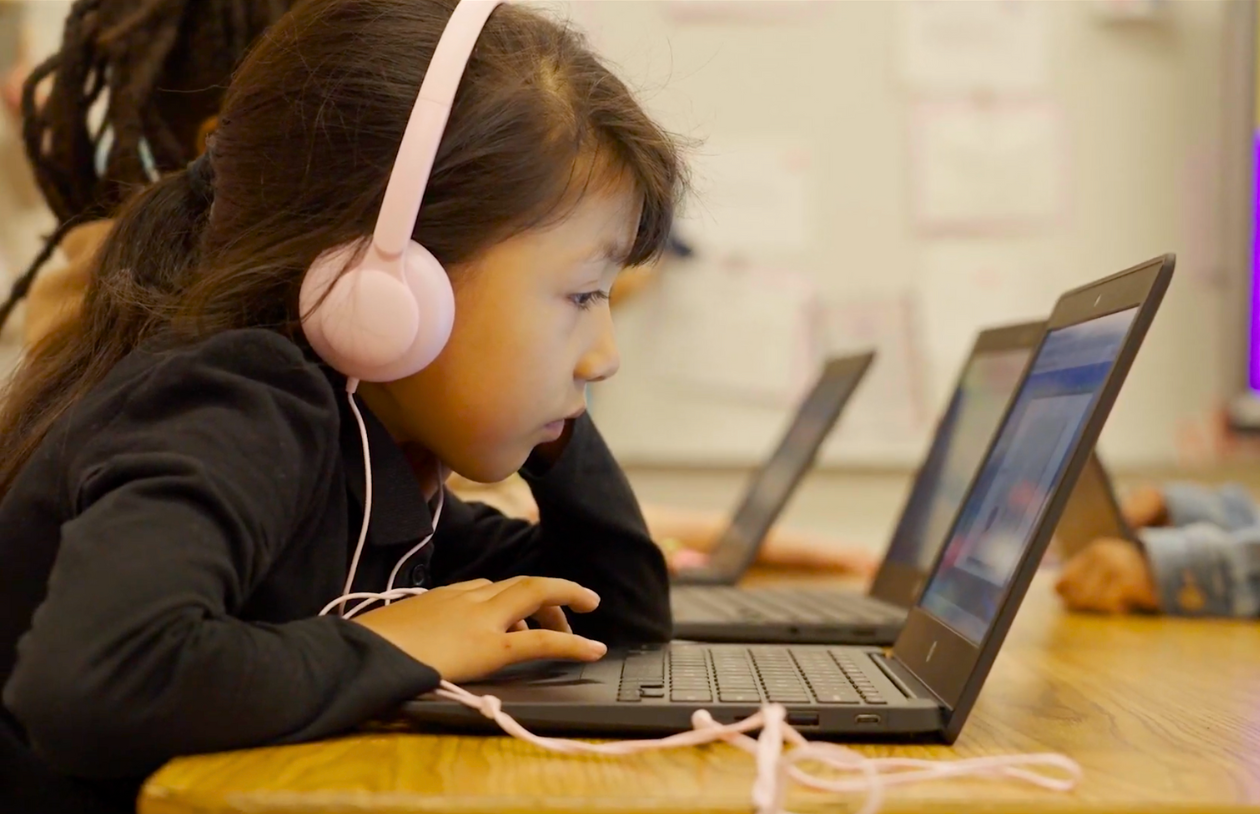Helping English Learners Stay Engaged with School

Mastering English can be wonderfully rewarding for non-native speakers. Bilingualism dramatically expands life opportunities as it strengthens memory, abstract thinking, and other executive functions. But for young English learners (ELs), the road to mastery can be so rocky that they lose motivation. How can schools help ELs stay engaged?
A key to success is a sense of inclusion. As a person navigates life in a second language, it’s natural to feel overwhelmed and isolated. Instructors can make a difference by cultivating inclusive environments as described below.
Classroom Strategies to Support ELs
The following teacher strategies help ELs feel comfortable and motivated to learn English. Most of these strategies support mainstream students too.
Establish a Safe Space for Mistakes
Making mistakes is normal as we learn a language. Even so, many ELs feel self-conscious about speaking in class. Educators can help combat this anxiety by establishing environments in which students feel respected by their teachers and peers. When students feel emotionally safe, they’re more likely to pay attention, ask questions, and share their ideas in class.
Teachers can establish safe environments by setting clear expectations for interpersonal behavior, giving positive reinforcement, and using curricula that promote cooperation and respect.
It’s also important that EL teachers are mindful of giving constructive criticism, ensuring that when mistakes are made, students feel confident about their ability to improve.
Use Social and Emotional Learning Material
Social and emotional learning (SEL) content addresses universal issues such as self-esteem, empathy, and friendship. The themes resonate with anyone, so students are likely to engage. The content can also help develop life skills and an inclusive classroom environment.
Many resources can help EL teachers incorporate SEL into their classrooms. Examples include books and videos that spark discussions, worksheets that encourage self-reflection, and activities that require teamwork.
Make Learning Fun and Relevant
Students are motivated by fun and game-like lessons. A few EL examples are writing a group story, reading a play aloud, and playing word games online or in class.
Discussions can also be highly engaging when students care about the topics. Teachers can plan discussions around current events, popular debate topics, and themes that students suggest.
Allow Creative Expression
Each student has their preferred communication style. Some enjoy speaking their minds whereas others prefer to write, draw, sing, or perform dramatic scripts. Allowing ELs to express themselves in different ways can boost self-confidence and classroom engagement.
One specific example is assigning art projects to teach nouns and adjectives in English. Another is teaching a song with movement to help ELs learn verbs.
Emphasize Writing, speaking, Listening, and Reading
While students have their preferred modes of expression, it’s important to ensure that everyone practices four language skills: writing, speaking, listening, and reading.
To help ease fears about speaking, assigning one-on-one activities can be useful. Teachers can also provide specific conversational phrases or have students replicate scenes from popular shows.
Make Room for Native Speaking
Through much of US history, schools insisted that immigrant and Native American children abandon their first languages. Now we recognize the social, emotional, and cognitive importance of maintaining a mother tongue. A skilled instructor understands the value of English immersion while recognizing that exceptions should be made — a strict English-only policy can be impractical and even harmful.
Effective EL teachers might incorporate native language in the classroom when clarifying instructions, discussing abstract concepts, or providing feedback. They also use culturally relevant content and bilingual materials to help ELs stay engaged.
Observe and Evaluate Progress
Like all teachers, EL instructors need to regularly assess each student and adapt lessons in response. However, tailoring lessons can be especially time-consuming for EL teachers because students tend to have a wide range of competencies. School leadership can streamline work by providing easy-to-use assessments and adaptive curricula.
Istation and the Role of Leadership
To do their jobs well, EL instructors need practical support. Istation offers personalized student profiles and an adaptive reading curriculum. Rich in academic vocabulary and gamified activities that help ELs stay engaged, the curriculum primes students for success across subject areas.
Teachers can use Istation’s web-based data tools to understand each student’s literacy needs, and the curriculum adjusts as needed. Its multi-tiered nature supports students at all performance levels, from struggling to advanced. Thousands of lesson scripts, worksheets, and other Istation resources are available for download.
Read more from the AI & The Reading Brain Blog


.avif)





